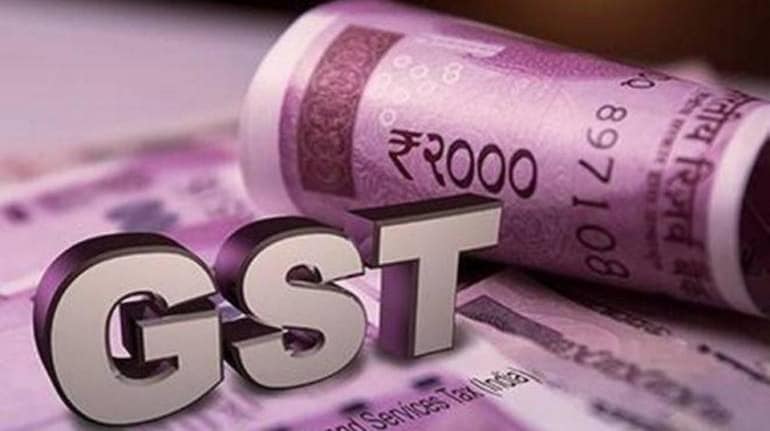According to the GST law, the Centre is expected to pay compensation to states for the states' loss of revenues because of subsuming of taxes.
The Goods and Services Tax (GST) Council is set to discuss the single-point agenda of compensation to states. The meeting would try to reach a consensus on the issue of market borrowing to solve the compensation problem.
According to the GST law, the Centre is expected to pay compensation to states for the states' loss of revenues because of subsuming of taxes. However, due to a slowdown that the Indian economy was facing even before COVID-19 happened, and the consequent slowing of revenues led to delayed payments to states.
The outbreak of COVID-19 and the nationwide lockdown imposed to tackle it, brought economic activities to a standstill. This has exacerbated the compensation issue so much so that the Centre now is not in a position to compensate states if the current method of calculation has to be followed.
Why should the Centre pay states?
Under the GST law, states were guaranteed to be paid for any loss of revenue in the first five years of the GST implementation from July 1, 2017. The shortfall is calculated assuming a 14 percent annual growth in GST collections by states over the base year of 2015-16. States are promised compensation for any revenue shortfall till 2022, in case they go below the 14 percent annual growth since the GST rollout in 2017.
After the implementation of GST, states lost the ability to raise revenues as most were subsumed under GST. Revenue would now be collected in states where goods and services were being consumed instead of states where it was being produced. This change led to states facing revenue uncertainty.
And to address this issue, the GST (Compensation to States) Act was enacted in 2017 on the recommendation of the GST Council.
A GST compensation cess on certain luxury and sin goods such as cigarettes and tobacco products, pan masala, caffeinated beverages, coal, and certain passenger vehicles is levied by the Centre. According to the GST Act, the Centre has to credit this cess revenue into a separate Compensation Fund. All compensation grants to states are required to be paid out of the money available in this fund.
Why has the Centre delayed payments?
In 2019-20, passenger vehicles sales fell by as much as 18 percent. Coal offtake from domestic coal companies reduced by nearly 5 percent on year. Thus, cess collections grew by 0.4 percent in 2019-20. But the compensation requirements of states increased by 104 percent, resulting in a shortfall of funds of nearly Rs 70,000 crore.
The states faced a delay in payment of compensation as Centre did not have sufficient funds. The funds raised by levying a compensation cess on the sale of certain goods, was affected by the economic slowdown.
How will Centre pay states then?
The 2020-21 Budget estimated a 10 percent growth in nominal GDP. But the outbreak of Covid-19 and the lockdown imposed to contain it, the actual growth in 2020-21 is being projected to be much lower.
The GST revenue of states would also be much lower than expected, thus leading to a higher compensation requirement. But the Centre would be able to pay compensation demands depending on the cess collected, which are also expected to be hit this fiscal.
One of the measures being considered to compensate states adequately is through market borrowing which would be repaid through future cess collections. To do this, the GST Council can recommend levying of cess beyond the five year period - after June 2022.
The other options before the council could be to rationalise GST rates, cover more items under the compensation cess or increase the compensation cess, or recommend higher borrowing by states to be repaid by the future collection into the compensation fund.
Can states take Centre to court?
The law mandates that the Centre should compensate states for revenue shortfall, making the central government legally liable. States have warned that if the Centre fails to honour the commitment, they would have no option but to take it to court.
The Centre had in March sought views from Attorney General K K Venugopal on the legality of market borrowing by the GST Council to make up for any shortfall in compensation fund - a corpus created from levying compensation cess on luxury and sin goods to compensate states for the loss of revenue on account of their taxes being subsumed into GST.
The attorney general opined that the Centre has no statutory obligation to make up for any shortfall in GST revenues of states from its coffers.
Earlier in August, Finance Secretary Ajay Bhushan Pandeyinformed the Parliamentary Standing Committee on Finance that the government was in no position to pay the GST share of states in keeping with the current revenue sharing formula.
Has the Centre paid states for FY 2019-20?
On July 27, the central government released more than Rs 1.65 lakh crore as GST compensation to states for 2019-20 financial year, including Rs 13,806 crore for March. The total amount of compensation released for 2019-20 is Rs 1.65 lakh crore, whereas the amount of cess collected during the year was Rs 95,444 crore.







